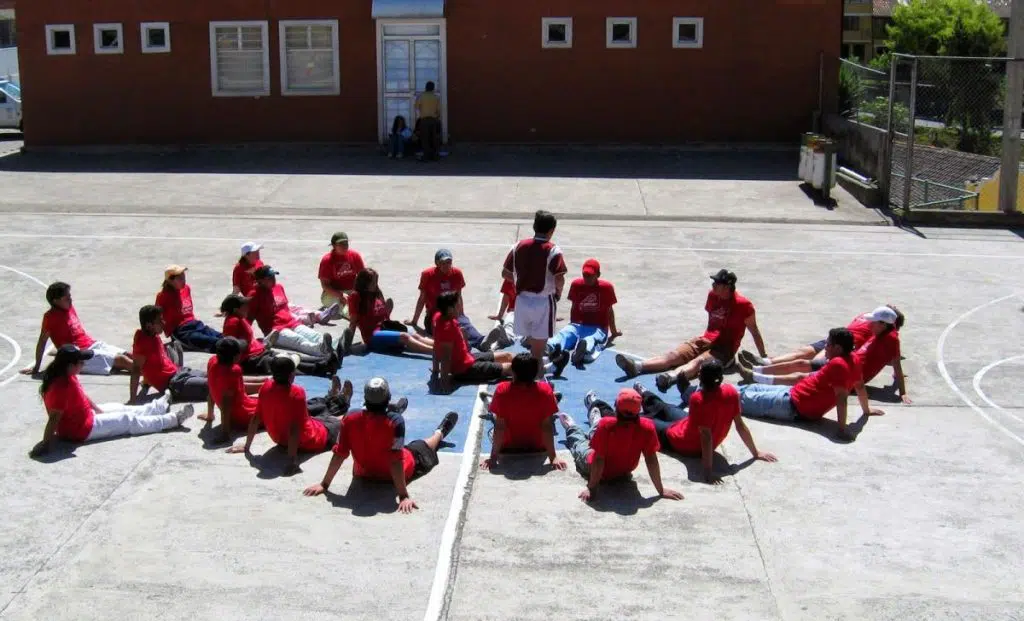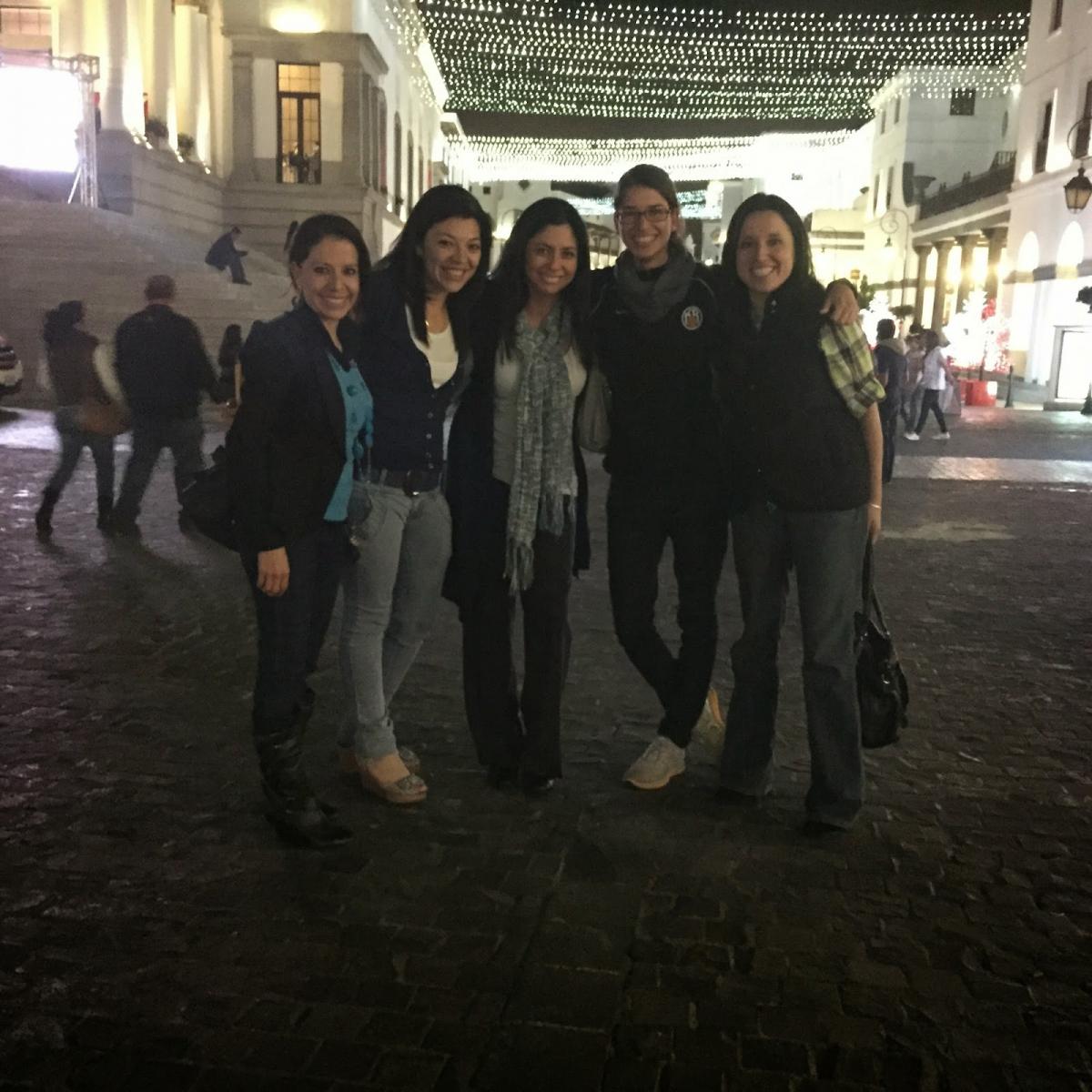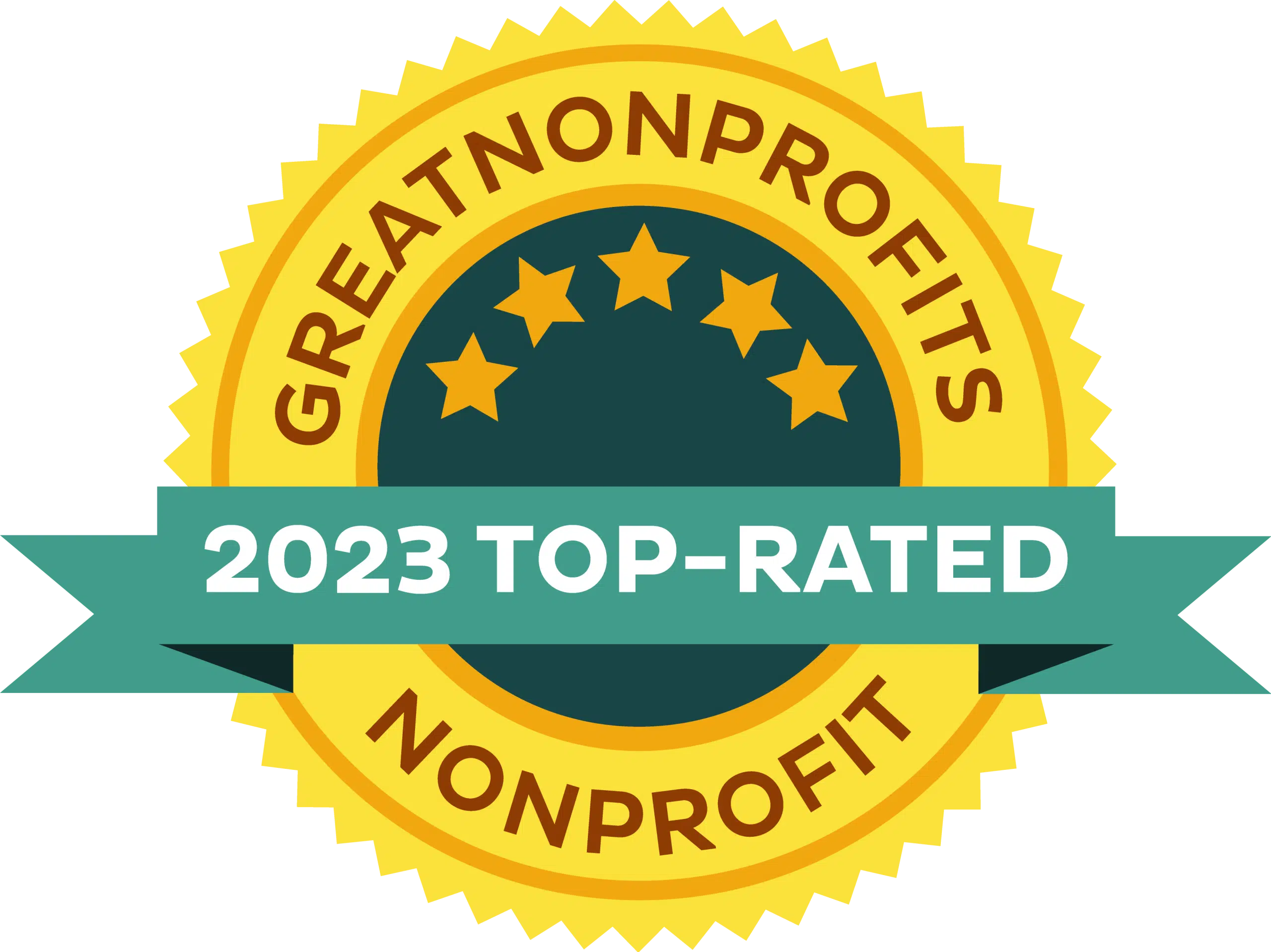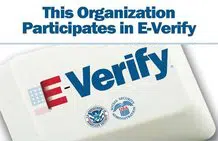“I believe in the power of sport, and great facilitators, to change lives.”
One of my favorite parts of my job is meeting with our amazing A Ganar Phase 1 facilitators. These are the people who work day and night leading field and classroom sessions with youth in some of the toughest neighborhoods in our hemisphere. These facilitators make sport come to life and use it to literally save lives. They open their hearts to youth. They risk their own lives traveling to and from sessions and working in environments that can explode in violence at any time. Some of the youth we work with are dangerously close to gangs, often only one or two steps away from being full-fledged members. For these reasons and more, I always say that our facilitators are the most important members of our A Ganar staff.
Recently I was in Guatemala where I had the opportunity to have dinner with three A Ganar facilitators. (I’ve withheld their names to protect their privacy and the youth in their groups.) It was a chance for me and my colleagues Nadia and Julissa to thank them for their work training youth in one of Guatemala City’s most violent communities. After getting past the usual social graces, we shifted the conversation to A Ganar. My colleagues and I wanted to ask them a few questions about the program. Our first question of “How can we improve A Ganar?” was met with some hesitance. Maybe they couldn’t think of concrete ideas on improvement or maybe they didn’t want to offend their hosts. Either way, it was difficult for them to answer.
We followed with: “What has been the best moment you’ve had as a facilitator?” All three immediately changed their posture as their eyes lit up. Clearly, we struck an emotional cord. One facilitator told us about several youth who at first had trouble expressing themselves, but later, in an evaluation session, became quite eloquent in describing how they had changed as a result of A Ganar.
A Ganar Facilitator leads a field-based session
Another facilitator told us about an episode that affected her group. At an event, members of a gang showed up and threatened some youth from the program. A fight broke out and some of the youth were injured. Later one of the boys from A Ganar, who had been hurt at the event, came to class with an injured hand. She cleaned, dried and bandaged his wounds; a simple gesture by a caring teacher and friend. He thanked her and told her that it was the first time that anyone had ever shown compassion or cared for his health and safety. Imagine, being a teenager and feeling looked out for for the very first time. How would your life be different if you were raised in these conditions?
Because of similar conversations with A Ganar facilitators in other countries, I asked more questions to the group. “Has anyone ever said, ‘Why can’t school be more like A Ganar?’” Three yeses. “Has anyone ever told you ‘A Ganar was the first place I’ve been congratulated for doing something well.’?” Three yeses. “Has anyone ever come to you to talk about personal matters and how to discuss them with their family or friends?” Again, three yeses.
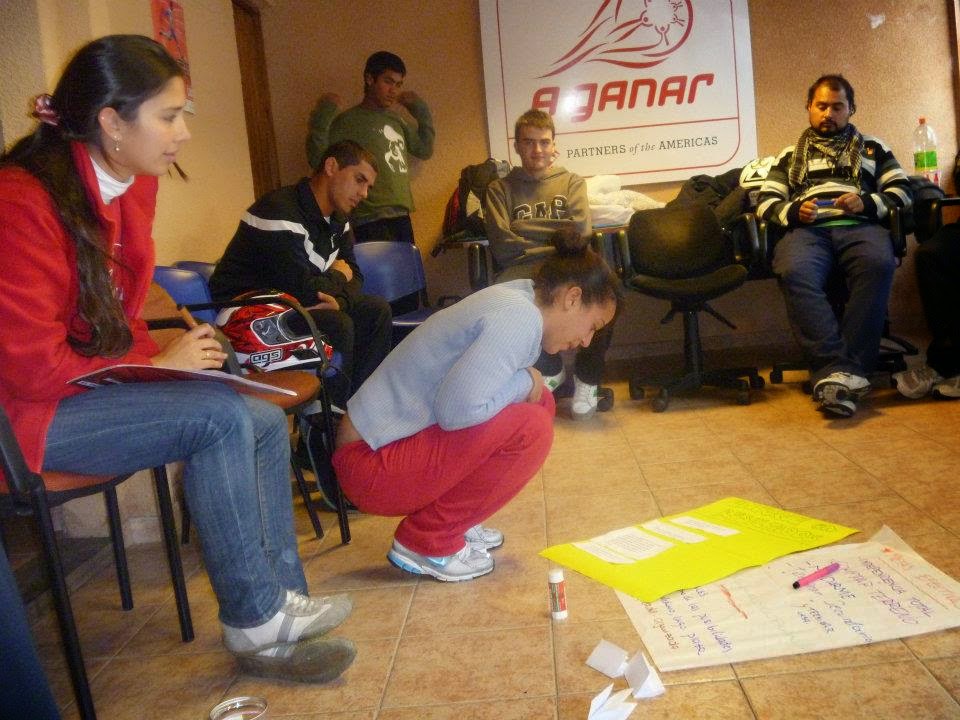
So in this season that celebrates peace, joy and hope, I want to recognize all the wonderful A Ganar Phase 1 facilitators. They take a field and ball and turn them into the world’s greatest classrooms. They validate youth as persons worthy of a dignified future. They risk their own safety to put themselves in front of youth who are struggling with emotional ups and downs. They listen, bandage wounds, guide and recognize the victories great and small that each individual youth finds in A Ganar.
I hope that you will join me in thanking them all.
A Ganar (Vencer in Brazil) is often described as a youth workforce development program wrapped up in a soccer ball. A Ganar combats the serious problem of youth unemployment by utilizing soccer and other team sports to help youth in Latin America, ages 16-24, find jobs, learn entrepreneurial skills, or re-enter the formal education system. The program is funded by the generous support of the U.S. Agency for International Development (USAID), the Inter-American Development Bank (IDB) and many other donors. This post reflects the views of the author and does not necessarily reflect the views of any of the program’s donors or sponsors.
—————————————————————————————————————————————–
Facilitadores A Ganar – Nuestros “Jugadores” Más Valiosos
“Creo en el poder del deporte, y los grandes facilitadores, a transformar vidas.”
Una de mis partes favoritas de mi trabajo es reunirme con nuestros increíbles facilitadores de A Ganar Fase 1. Son las personas que laboran día y noche liderando sesiones de campo y aula con los jóvenes en algunos de los barrios más peligrosos de nuestro hemisferio. Ellos son las personas que dan vida al deporte y que lo usan para literalmente salvar vidas. Ellos abren sus corazones a los jóvenes. Ellos arriesgan sus propias vidas viajando a las sesiones y trabajando en ambientes que pueden explotar con violencia en cualquier momento. Algunos de nuestros jóvenes están peligrosamente cercanos a las maras, a veces solo uno o dos pasos de ser miembros formales. Por estas razones y más, siempre digo que nuestros facilitadores son los miembros más importantes de nuestro equipo.
Recientemente estaba en Guatemala donde tuve la oportunidad de cenar con tres facilitadoras de A Ganar (No uso sus nombres para proteger su privacidad y la de los jóvenes en sus grupos). Fue una oportunidad para, junto con mis colegas Nadia y Julissa, agradecerles por su trabajo capacitando jóvenes en una de las comunidades más violentas de Guatemala. Después de intercambiar saludos pasamos la conversación para A Ganar. Mis colegas y yo queríamos hacer algunas preguntas sobre el programa. Las tres facilitadoras no respondieron a nuestra primera pregunta “¿Como podemos mejorar A Ganar?” Quizás no podían pensar en ideas concretas sobre el mejoramiento del programa o quizás simplemente no querían ofender a sus supervisores. De todos modos, tuvieron dificultades para responder.
Continuamos con “¿Que ha sido su mejor momento como facilitadora?” Todas las tres inmediatamente cambiaron su postura y se les iluminaron los ojos. Evidentemente, encontramos un punto emocional. Una facilitadora nos contó sobre varios jóvenes quienes al inicio tuvieron problemas en expresarse, pero luego, en una sesión de evaluación, hablaron con mucha elocuencia cuando explicaron cómo habían cambiado como resultado de A Ganar.
Otra facilitadora nos habló sobre un episodio que afectó a su grupo. Durante un evento, miembros de una mara llegaron y amenazaron a algunos jóvenes del programa. Hubo un pleito y algunos jóvenes salieron con heridas. Uno de los jóvenes de A Ganar quien había sido herido durante el evento llegó a la sesión con una lesión en la mano. La facilitadora limpió, secó, y vendó sus heridos; un simple gesto por una cariñosa maestra y amiga. Él le agradeció y le dijo que eso fue la primera vez que alguien le había mostrado compasión o que se había preocupado por su salud y seguridad. Imagínese, siendo un adolescente y sintiendo por primera vez que alguien se preocupa por usted. ¿Cómo sería diferente su vida si usted hubiera sido criado en estas condiciones?
Basándome en conversaciones similares con facilitadores de A Ganar en otros países, les hice más preguntas al grupo. “¿Alguna vez alguien les ha preguntado, ‘Porque la escuela no puede ser más como A Ganar?” Tres Si’s. “¿Alguna vez un joven les ha dicho que ‘A Ganar fue el primer lugar donde me felicitaron por hacer algo bien.’?” Tres Si’s. “¿Alguna vez un joven se ha acercado a usted para hablar de un asunto personal y de cómo hablar del asunto con su familia y/o amigos?” Otra vez, tres Si’s.
Nuestros facilitadores nunca pierden visto que el propósito de A Ganar es ayudar a jóvenes encontrar trabajo o volver a la escuela, pero siempre reconocen que nuestros jóvenes vienen al programa con vidas complejas y con problemas complicados. Ellos saben que para tener vidas sanas y productivas y empleos estables, los jóvenes necesitan alguien para escuchar, guiar, y aconsejarles; alguien que sea un mentor y entrenador.
Entonces, en esta época que celebra la paz, la alegría y la esperanza, quiero reconocer a todos los maravillosos facilitadores de A Ganar Fase 1. Ellos toman una bola deportiva y un campo y los convierten en las mejores aulas de aprendizaje en el mundo. Ellos validan a los jóvenes como personas que merecen un futuro digno. Ellos arriesgan su propia seguridad para exponerse frente a jóvenes que están experimentando altas y bajas emocionales. Ellos escuchan, venden heridos, guían y reconocen las victorias, grandes y pequeñas, que cada joven encuentra en A Ganar.
Espero que se unan conmigo para agradecerles a todos.
A Ganar (Vencer en Brasil) es frecuentemente explicado como un programa de desarrollo laboral juvenil envuelto en un balón de fútbol. A Ganar combata el serio problema del desempleo juvenil utilizando el fútbol y otros deportes de equipo para ayudar a jóvenes de América Latina, entre 16-24 años de edad, encontrar empleo, aprender habilidades empresariales o volver al sistema educativa formal. El programa es financiado por el generoso apoyo de la Agencia de Desarrollo Internacional de los Estados Unidos (USAID), el Banco Inter-Americano de Desarrollo (BID) y otros donantes. Este blog representa las opiniones del autor y no necesariamente representa opiniones de los donantes o patrocinadores.
